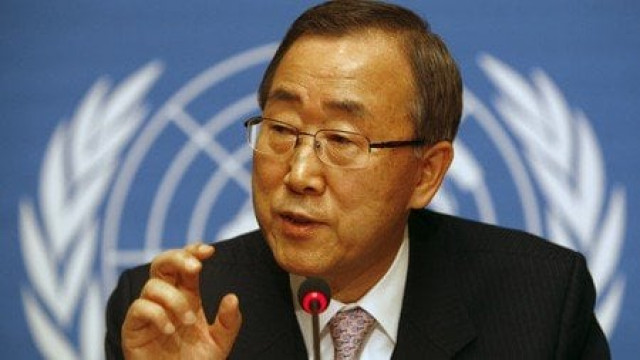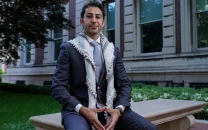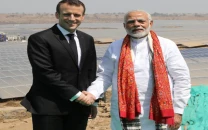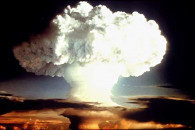UN chief urges Karzai to act on good governance

“We expect President Karzai and his government would come up with a concrete action plan ... about the way to enhance good governance, promote further reconciliation and also how he can improve the security situation in his country,” he told an agency in an exclusive recent interview here ahead of the conference.
The UN secretary-general, who will co-chair the high-level meeting in Kabul along with Karzai, said the future of Afghanistan remained “a high priority agenda” for the international community and the world body.
Up to 70 international representatives and 40 foreign ministers, led by US Secretary of State Hillary Clinton, are expected to attend Tuesday’s gathering, a follow-up to a donors’ meeting held in London in January.
Afghan authorities plan to use the conference to present donors with proposals to improve governance, implement economic and social development, assert rule of law and justice, support human rights, use aid more effectively and map out peace efforts.
In exchange they will press the international community to give them control of 50 per cent of all donor funds within two years, according to organisers.
But with impoverished Afghanistan saddled with one of the most corrupt governments in the world, questions have been raised about the credibility of Karzai’s development plan.
The Afghan leader pledged to crack down on corruption after being re-elected in controversial polls marred by fraud last August.
“We have been urging President Karzai to do more on good governance, particularly fighting against corrupt practices in his country and to do more to promote reconciliation,” Ban said. He insisted that the world community has endorsed Karzai’s plan to launch peace talks with Taliban moderates.
“But that is not without any conditions,” the UN boss stressed, pointing to Karzai’s demand that militants renounce violence, accept the Afghan constitution and break off ties with al Qaeda.
“This reconciliation process with the Taliban should be led by Afghans. But the United Nations and the international community are ready to assist,” he added.
A Security Council sanctions panel has been asked to remove the names of some Taliban members who were not linked to al Qaeda from its terror blacklist.
The Afghan conflict “cannot be dealt with only by military means,” Ban said. “There should be some comprehensive strategy. That is what we are going to discuss.”
Afghanistan is trying to rebuild with the help of the international community, mainly Western powers following the ouster of the Taliban regime in a US-led invasion in late 2001.
The United States and NATO have 143,000 troops in the country, with the number due to rise to 150,000 in coming weeks as international forces step up their campaign against the Taliban.
US forces are to begin withdrawing from the country a year from now and Afghan forces’ ability to take over responsibility for securing their borders and quelling a resurgent Taliban insurgency is seen as crucial to Western plans to wind down the war.
“It’s going to be a huge challenge,” Ban said, adding that the UN would continue to play a major coordinating role in civilian and socio-economic affairs. “We are helping them (the Afghans) to be ready until they will be able to stand on their own.”
The UN secretary general, meanwhile, said he had repeatedly urged Karzai “to improve and maintain a good relationship with neighboring countries, particularly Pakistan.”
Ban also addressed concern about the safety of UN staff in Afghanistan. Last October, five UN staffers died when Taliban militants stormed their Kabul guest house.
“We have been strengthening our own security, with help from member states. But more needs to be done,” the UN boss said. “Because of serious security concerns, we have been experiencing vacancy problems,” he added. “We have not yet been able to fill out those vacancies.”
Published in The Express Tribune, July 20th, 2010.



















COMMENTS
Comments are moderated and generally will be posted if they are on-topic and not abusive.
For more information, please see our Comments FAQ